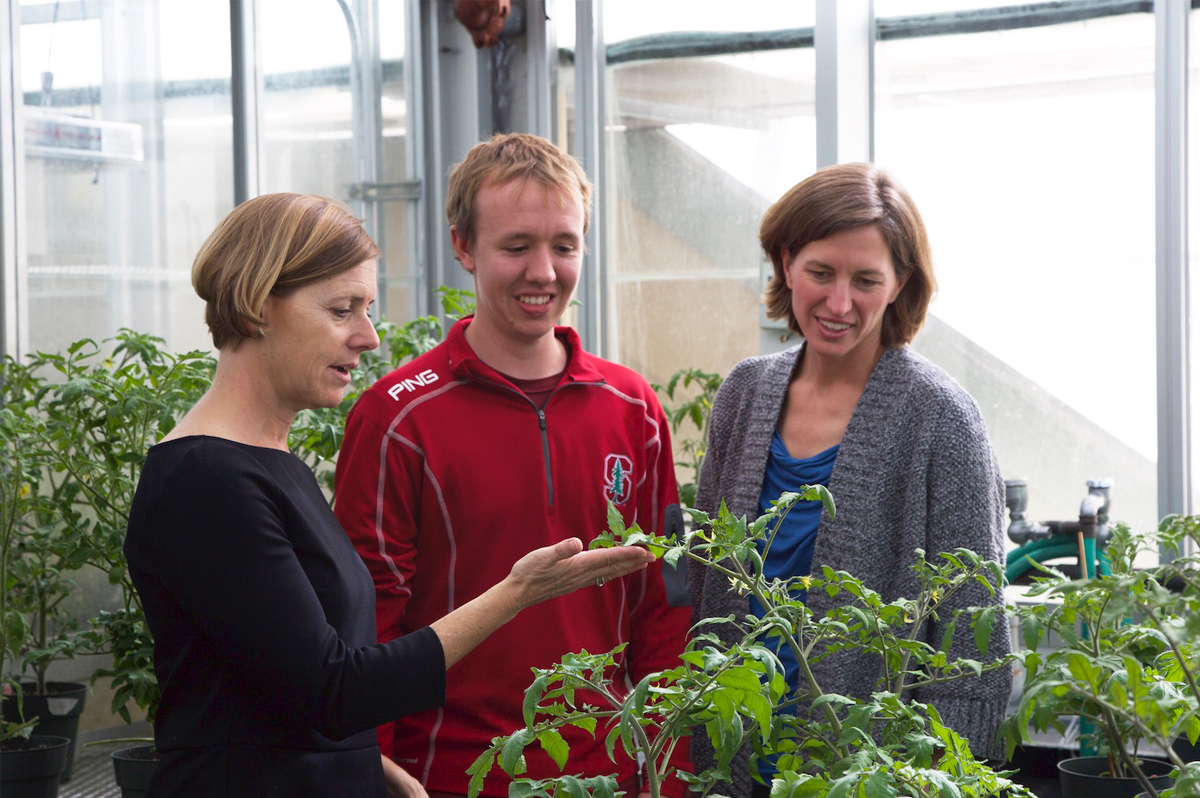
Scientists 'Vaccinate' Plant to Boost Defense Against Pest
October 30, 2019| |
Stanford University scientists led by plant biologist Mary Beth Mudgett and chemical engineer Elizabeth Sattely have saved tomato and pepper plants from bacterial speck, a bacterial infestation that spreads from leaf to leaf, turning leaves yellow and ultimately killing the plants. The scientists treated uninfected leaves with a newly discovered and naturally occurring chemical called N-hydroxy-pipecolic acid (NHP) which triggered a series of chemical responses that made uninfected leaves less hospitable to pathogens seeking to invade.
A previous study found that NHP activates systemic acquired resistance (SAR) that creates a chemical defense shield to protect uninfected tissues. The defense system has been known to scientists, but what activated it was still unknown. The scientists applied NHP on the underside of tomato and pepper leaves, and infected the leaves with the bacterium that causes bacterial speck. The treated plants did not have any of the disease symptoms, suggesting that NHP had activated resistance. However, plants that had water applied to their leaves instead of NHP succumbed to the infection.
According to Mudgett, it was only last year that their team and another group discovered how NHP flipped on this defensive system in plants in the lab. They made NHP and used it as an inoculant to switch on the defense mechanism in crop plants, as well. The team analyzed the genomes of more than 50 plants, including maize and soybeans, as these plants could produce small quantities of NHP. Having shown that an extra dose of NHP triggered this self-defense system in tomatoes and peppers, the research team thinks that it might be possible to splice the NHP genes into commercial plants to boost their natural defenses.
For more details, read the Stanford News.
| |
Biotech Updates is a weekly newsletter of ISAAA, a not-for-profit organization. It is distributed for free to over 22,000 subscribers worldwide to inform them about the key developments in biosciences, especially in biotechnology. Your support will help us in our mission to feed the world with knowledge. You can help by donating as little as $10.
-
See more articles:
-
News from Around the World
- 'Oppressively burdensome' Gov't Regulations Impede Longed-for Approval of Golden Rice
- Biotech Soybeans Now Cover 50% of the World's Biotech Crop Area
- Niger Parliament Approves National Biosafety Law
- International Research Team Traces Family Tree of More than 1,100 Green Plants Over 1 Billion Years
- Scientists 'Vaccinate' Plant to Boost Defense Against Pest
- Young NZ Scientists Appeal for Overhaul of GM Research Regulations
- Study Finds Organic Farming is Worse for Climate Change
-
Research Highlights
- Interplay between miR156/SPL13 and DFR/WD40–1 Affects Drought Tolerance in Alfalfa
- Developing Ozone Tolerance in Tomato Might Interfere with Plant Disease Management
-
Plant
- CRISPR-Cas9 Used to Reduce Seed Dormancy in Rice
- Harvard, MIT Experts Develop New Gene Editing Technology
-
Read the latest: - Biotech Updates (December 10, 2025)
- Gene Editing Supplement (November 26, 2025)
- Gene Drive Supplement (February 22, 2023)
-
Subscribe to BU: - Share
- Tweet

